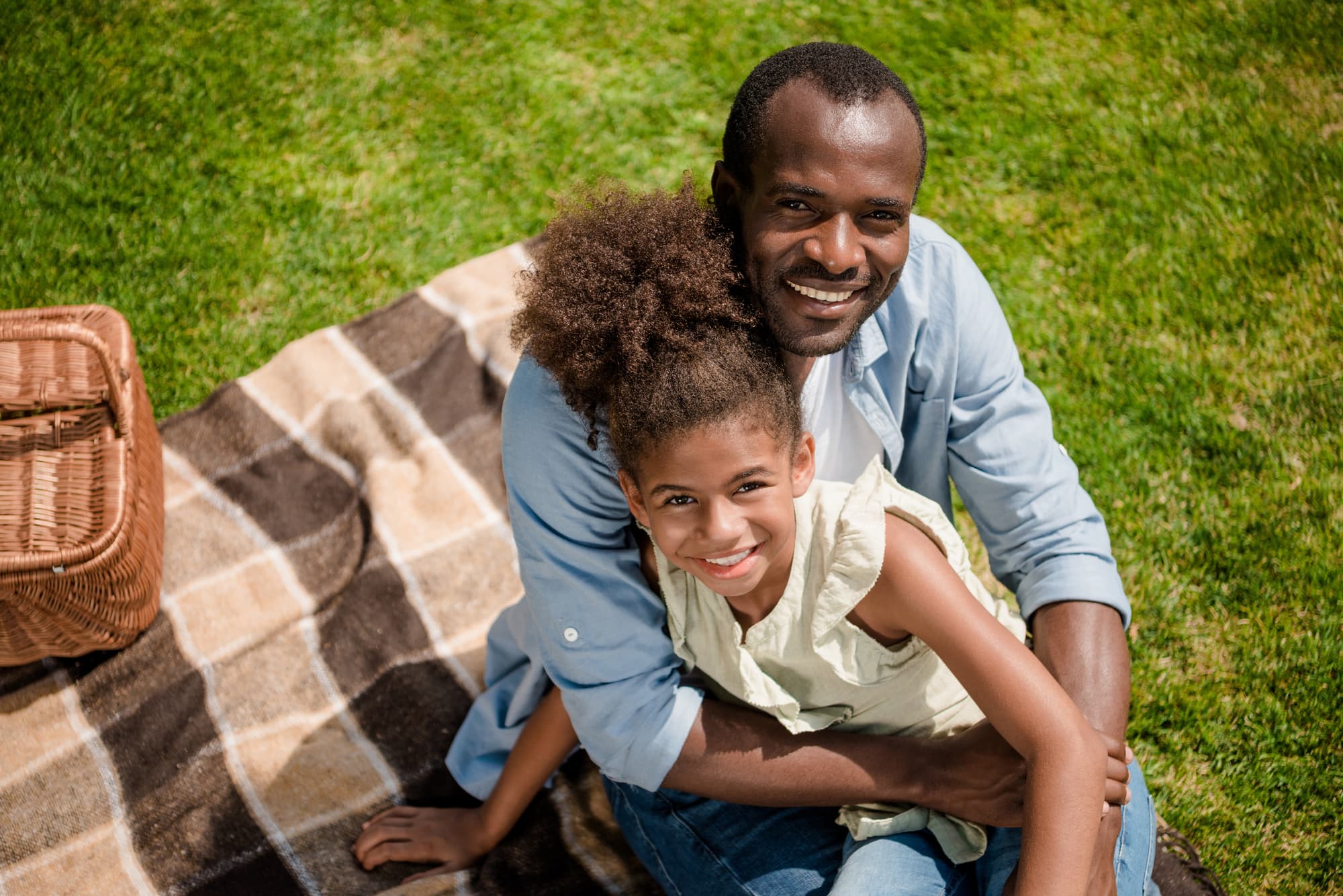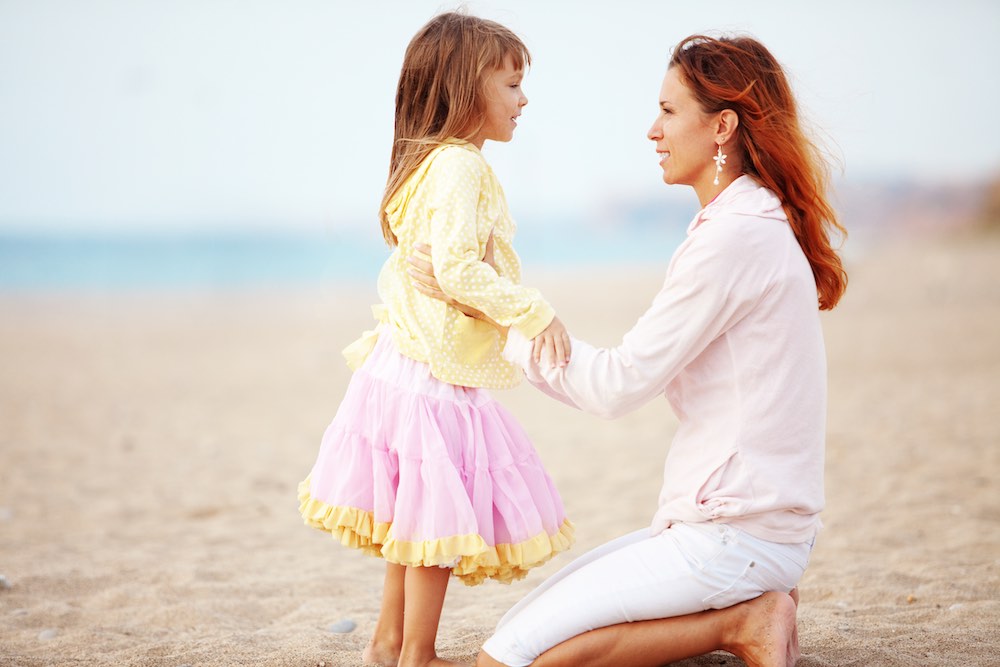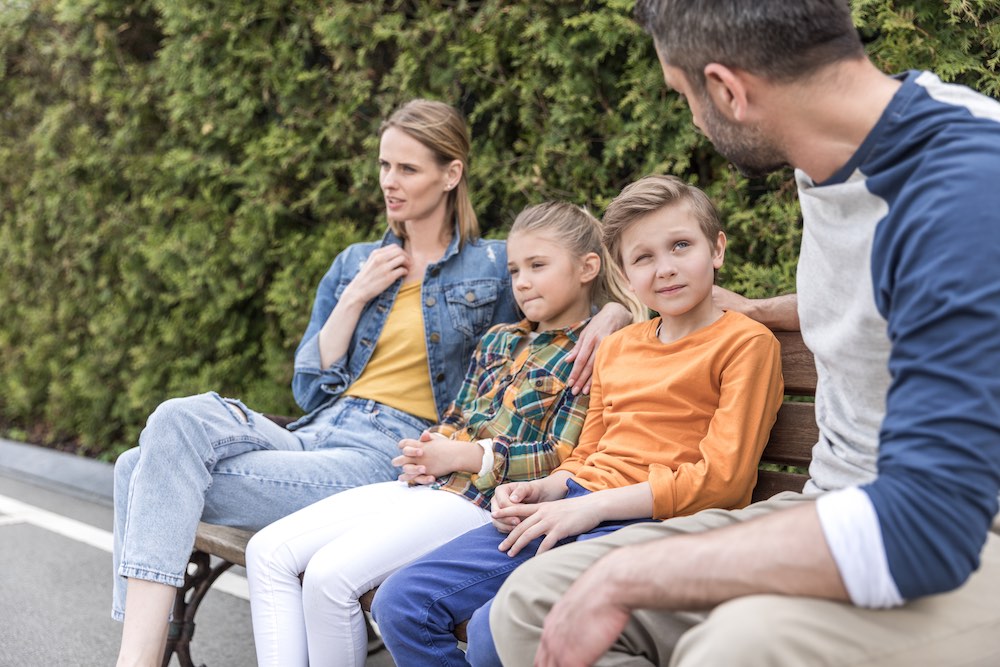How to Tell Kids About Divorce [Infographic]
Over the decades, American culture has shifted back and forth about how divorce affects children. At times our society has believed that having parents who are unhappy in their marriage will lead unhappy children, and at other times our society has believed that children with married parents are happier than those with divorced parents.
Regardless of your beliefs about divorce, there is no escaping the fact that divorce affects children. We’ve done some research on how divorce really affects children to help you decide how to tell your children about divorce and know the signs to look out for as they process the divorce over the short- and long-term.

How Divorce Affects Children Infographic

How Does Divorce Affect Children?
Scholars have been researching the subject for decades and have found numerous patterns associated with the changes in children’s and teenagers’ behavior after their parents have gotten a divorce.
Short-Term Effects of Divorce on Children
After a divorce, children and teenagers may experience a minor to substantial increase in sadness, anger, and/or depression. If left unchecked, these emotions may become long-term issues. In either case, these emotional changes can lead to:
Aggression It is not uncommon for children to become aggressive after experiencing their parents’ divorce. This aggression can be their way of expressing pent-up frustration at their inability to change or cope with their new home life situations.
Non-Compliance Non-compliance in children is a common result of divorce, and one that can be channeled into specific areas of their life. For example, a child who has become non-compliant may only show minor signs at home, but may be exhibiting more negative behavior at school and start getting into trouble on a regular basis.
Long-Term Effects of Divorce on Children
In many family situations, a divorce reduces the family’s income and the amount of time each parent can spend with their children. Research has shown that children with divorced parents are nearly five times more likely to live in poverty than children whose parents are still married. Over time, the results of this economic hardship can impact children in every area of their lives, including their educational, professional, and romantic lives as they transition into adulthood.
Whether due to a need for a stay-at-home parent to start working in order to support themselves and their children, or the simple fact that a divorce will cause each parent to see their children less often, a decrease in parental supervision and/or influence will almost definitely have a long-term affect on children of divorce. This may take shape as a child getting into trouble or acting out when they are not receiving the same level of supervision or attention that they were used to receiving before the divorce. Teenagers whose parents have recently gotten a divorce or who have not adjusted to a divorce in their childhood are more likely to become involved with sex, drugs, and alcohol than their peers with intact families.
Perhaps the most difficult effect to overcome is the potential for a lifetime of emotional scars related to the divorce. Depending on how deeply a divorce affects a child, their age at the time of the divorce, and other factors surrounding their personality and the results of the divorce, children may carry any form and amount of emotional scars that can have a negative impact on them for years, decades, or even the rest of their lives.
Positive Effects of Divorce on Children
Fortunately, not all children suffer from divorce and carry emotional scars. What’s more, getting a divorce can actually have positive effects on children.

Increased Resilience & Adaptability
By its nature, divorce forces children to become more adaptable and able to cope with situations that many of their peers will not experience until college or even later in life. As a result, some children of divorce may be more resilient and adaptive as they go through life.
Increased Self-Sufficiency
Similar to growing up in a single-parent household, some children of divorce may develop a high level of self-sufficiency, especially if the parent they spend at least 50% of the year with has a full-time job. It’s not uncommon for self-sufficient children to do their own laundry, make their own food, take on additional household chores, become more involved in grocery shopping, and be comfortable having time alone themselves.
Increased Empathy Towards Others
Some children of divorce can develop an increased sense of empathy towards other people and their unique situations, especially when their peers are going through difficult family issues.
Better Relationships With Each Parent
While divorce will understandably reduce the amount of time each parent can spend with their children, some children actually become closer to their parents after a divorce because they get to spend more time with each parent individually. Since typically only one parent will be in the picture at a time and they are more likely to have conversations that are just between the two of them, children of divorce may learn more about each of their parents and get to know them on a more personal level than they would have if their parents had not divorced.
More Serious Thoughts on Marriage
Even as adults, children will remember the negative emotions and experiences they had during and after their parents’ divorce, and realize the importance of having a marriage that can last. They will likely want to enter a marriage that is strong, happy, and stable—or not marry at all.
How to Tell Kids About Divorce
How you tell your children that you and your spouse are getting divorced is just as important as your relationship with them after the divorce. Here are some important things to keep in mind as you decide to tell your kids that you’re getting divorced.
Timing Matters
Don’t tell your children you’re getting a divorce until you’re 100% certain that it’s going to happen. Even if you and your spouse decide to work things out or “give it another go,” the uncertainty of divorce will linger for your children, and children do not thrive in uncertainty. Once you do tell them, make sure you have plenty of time for them afterwards. They may need a lot of hugs, love, and reassurance that everything will be okay for you and them.
Tell Them Together
Even if the only thing you and your spouse can agree about is that you want to get a divorce, try to agree about what you’ll tell your children and tell them together. You and your spouse should share ownership of the decision to divorce in order to help your children feel more comfortable. Doing these things will help reduce the confusion that comes with different versions of the story, as well as negative emotions from children towards one or both parents.

Consider your children’s age and emotional maturity while you’re planning what to say. Be honest and straightforward with your children, but keep in mind that less is often more. Expect them to have questions afterwards, whether they come during the conversation or days or weeks later, and answer honestly and simply.
Don’t Blame Each Other
No matter how angry or hurt you are, it’s best to not blame your spouse for the divorce or argue with them in front of your children. It’s also best to not mention any financial problems or extramarital affairs to or in front of your children. You and your soon-to-be ex are the most important people in the world to your children. They will take extra notice of anything negative you say about each other, they will remember it, and they may even blame themselves.
Spare Your Children from the Details
Don’t let divorce papers, legal issues, or custody concerns bleed into your children’s lives—and pay attention to what you say on the phone when they may be able to overhear you.
Pay Attention to Their Behavior
Every child processes divorce differently. Look out for signs of any of the aforementioned negative effects that divorce can have on children. Remember to take each day at a time; your children will not always be upset about the divorce, just as they will not always be accepting of it. Help them through the difficult times as best as you can and make sure they have other family members (aside from you and your ex) that they can turn to for support.
Take Care of Yourself
Your physical and mental health will greatly affect your ability to be there for your children during the life-changing process of divorce. In 2019, the divorce rate for marriage in the U.S. was 50%. Don’t be ashamed of talking about your divorce and grieving your marriage. Give yourself permission to seek help and support, whether in a professional setting, from close friends, or close loved ones. Remember that you are not a bad parent for getting a divorce and that your kids can still have a good life.
Divorce in Florida With Children
If you’re considering getting divorced in Florida and are worried about the impact it will have on your children, a Florida divorce attorney can help. At Ross and Andreassi, we have been helping families overcome the difficulties of divorce for over 40 years. We will help you through the process of mediation and, if mediation is unsuccessful, through every step of finalizing your divorce so you can make smart and informed decisions for your and your children’s futures. If you’re ready to transition through your divorce and into a new life with your children, give us a call at (386) 200-9950.

- Divorce Attorneys Daytona
- Nation's Top 1% Distinguished Counsel
- Board Certified Specialist in Marital & Family Law
- Super Lawyers®
- 40+ Years of Helping Families


